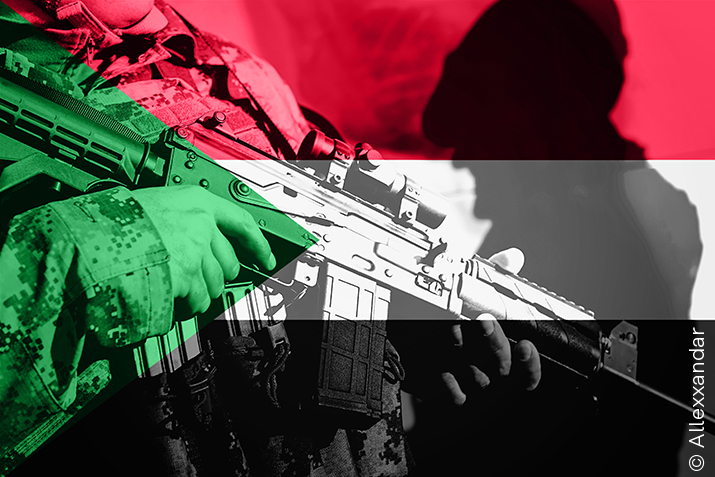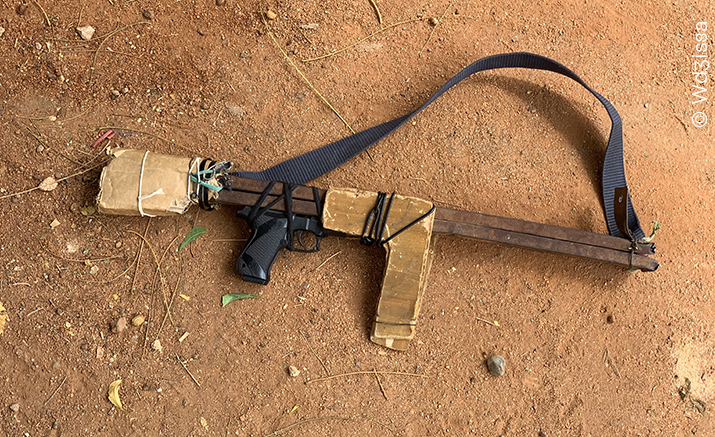In the columns of the 'Voce', we have already had occasion to recall how the Russian-Ukrainian and Middle Eastern conflicts - the latter initially limited to Israel and Palestine and later extended to other countries in the area- although devastating in terms of loss of life and material destruction as well as disruptive in terms of long-term geo-political repercussions, are unfortunately far from being the only war sites currently open in the world.
Statistical surveys by an authoritative US non-profit organisation, 'Armed Conflict Location and Event Data Projects', have counted the existence, in the five continents, of no less than 51 situations in 2024 that could have led either to the use of weapons or to situations approaching military conflict.
On some sides - such as Afghanistan, Yemen, Myanmar (formerly Burma) and Ethiopia - the conflict has been dragging on for years now, without any foreseeable possibility of an end, and appears to constitute, to the increasingly indifferent observation of governments, public opinion and the media, a practically unchangeable element of the current international context.
In short, quoting the title of a book by the famous Israeli writer Hannah Arendt, we are faced with a plurality of 'banality of evil', in which the existence of war, with its nefarious contour of recurrent massacres, indescribable violence and enormous deprivation, ends up being taken for granted, such as to nullify any attempt at peacemaking.
Alongside them, cases of more recent, less established conflicts also exist. We would like to comments on one of them, Sudan, below, as it seems to us emblematic of the extreme weakness (or some might say 'uselessness') of the system of multinational organisations created, since 1945, precisely with the noble intention of settling any future disputes between states by negotiation.
Although prone to bloody changes of power since acquiring independence in 1956, as well as separatist phenomena (which led to the creation of South Sudan a few years ago), even the African country was not prepared for the dramatic consequences of the struggle for territorial control that erupted, following yet another coup d'état, in 2023 between the regular armed forces (Saf) and some special units (Rsf). These were divided both by the political ambitions of their respective leaders and by considerations of inter-ethnic dominance.
In this theatre of war, too, it is possible to document both external military support (Iran and Egypt on the side of Saf, the United Arab Emirates on the side of the RFS, support that is obviously motivated, on both sides, by substantial economic interests) and the encroachments of notoriously unscrupulous militias from the neighbouring territories. These include, first and foremost, the 'Wagner', the feared armed wing of the Russian Federation, which is used to further expand Moscow's already considerable influence on the African continent, also gaining valuable support when voting at the United Nations.
But, of all the possible consequences, the most tragic concern the fate of the Sudanese civilian population of around 45 million people. So far, over 150,000 victims have been confirmed, while estimates suggest that more than two million people could ultimately fall victim to what is projected to be the worst famine on the African continent since the crisis that devastated Ethiopia in the 1980s.
The explicit acknowledgment of 'political impotence' by the new U.S. Special Envoy, Tom Perriello, is worryingly mirrored by the strikingly limited humanitarian support. If one gives credence to the estimates of Arif Noor, the local head of Save the Children—and there is no reason not to—then for every million invested in humanitarian aid to Ukraine, Sudan receives the paltry sum of only a few thousand euros from the combined efforts of governments, international financial institutions, and various NGOs.
Yet, setting aside any concerns for the fate of women, the elderly, and children, there are numerous compelling reasons to prevent Sudan from becoming another failed state, such as through a de facto division based on the Libyan model. We will mention only two of them here.
The first reason is security: Sudan borders the Red Sea for 800 kilometres, a crucial artery of global trade connected to the Suez Canal. This region is already threatened by terrorist activity, including Houthi guerrillas, making it a shared priority to safeguard it from additional threats to free maritime navigation
The second reason is related to migration, as a mass exodus from Mediterranean ports must also be avoided in this case, given that Sudanese refugees, alongside Syrians, Libyans, and Afghans, already constitute one of the largest national groups in refugee camps spread across various European countries.
As a final consideration, we must acknowledge that continuing to avert one's eyes from a crisis scenario so dense with repercussions on global stability is definitely not in the West's interest. In an era of more effective and cooperative multilateralism, given the extreme gravity of the situation, New York would have unhesitatingly deployed a peacekeeping mission to the region, aiming to de-escalate the violence and work toward a negotiated solution. Recognising the current decision-making paralysis of the United Nations, the pressing question of this early third millennium is whether a similar outcome can be achieved by alternative means, by identifying both the legal foundations and the available human and financial resources. Realistically speaking, it should be acknowledged, however, that we are not close to finding a solution to either aspect anytime soon.
Reggente Marco Marsilli, Foundation President









